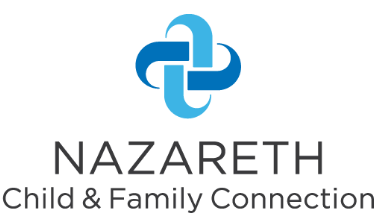Transitional Care The Transitional Program provides proper training, resources, and opportunities for practice--to help ensure youth are less likely to experience homelessness.
Purpose
Programs of this type were conceived out of a need in the childcare profession to better prepare young people. With proper training, resources, and opportunities for practice, youth are less likely to experience homelessness. The Transitional Living Program is a unique concept in answering this need. Our program is designed to offer low structure in a residential setting to youth who can benefit from being more self-reliant while simultaneously, raising the structure for those who are not ready for increased responsibility. This program teaches them to make appropriate decisions and redirects them whenever the appropriate decisions are not made.
Target Population
This program serves males and females who are 16 to 21 years old. An applicant should possess the ability to demonstrate self-control and have a general idea of future vocational and academic goals. There should be an “independent” desire for the services provided by the program.
Life Skills Training
Participants attend weekly independent living group meetings as well as work with Direct Care Staff on individualized goals and objectives they
- Money Management/Consumer Awareness
- Job Seeking/Job Maintenance
- Interpersonal Skills
- Emergency & Safety Skills
- Housing
- Educational Planning
- Food Management
- Health
- Legal Skills
- Community Resources
Preparation for Adult Living
The program prepares youth and young adults to be self-sufficient, regardless of future vocational and academic choices. Through life skills training, community awareness, and promotion of individual self-esteem, youth are able to gain a sense of personal responsibility. They are equipped with the skills necessary to survive and make a successful transition from foster care to self-sufficiency in an environment which may offer little adult support.
In focusing on program outcomes, it is important that we assist the youth in building a network of relevant services and support so that they will have ongoing connections with family, friends, mentors, the community, employment, education, financial assistance, skills, training, and other resources to facilitate their transition to adulthood. The intent of the program is to provide these services for youth who have no means of support upon the age of maturity, as well as those who desire to take these skills and return to their family in order to improve the existing home situation.
Admissions
The referral source should apply by completing the State Application and submitting records to the Transitional Living Services Case Manager. This will begin the admission process. The Case Manager from Nazareth Child & Family Connection will contact the referral source for further action.
Beyond Group Living
The Transitional Living Apartments are an extension of the Transitional Living Program, which provides apartment living for residents who have progressed through the program group home setting. The on-campus apartments provide an opportunity for residents to continue to develop and practice the skills they have learned, while continuing to be provided a safety net that includes an apartment manager and staff to assist with their needs. Assessment tools are used to measure the residents’ skill knowledge and is also used to determine the readiness of the individual in regards to supervision and campus apartment living. This program assists youth between the ages of 16-21. There are a total of 8 beds occupied by Males or Females.
Aftercare
Nazareth continues to provide support and resources for our alumni. We have an active alumni association and host annual family reunions. We work to ensure services are continued even after care ends at Nazareth. Financial resources are available to qualified residence for educational and vocational training.
Referral Procedures
In order to make a referral for any of our residential programs or foster care, please email information to referral@nazcfc.org.
This email automatically sends your information to all program managers, case managers, and social workers on staff. This allows our agency to follow up quickly and deliver an immediate response.
If you have any questions, you can reach us via phone at 704.279.5556 or 888.207.0250.
If you prefer to fax information please fax to 704.255.1801, ATTN: REFERRAL.
